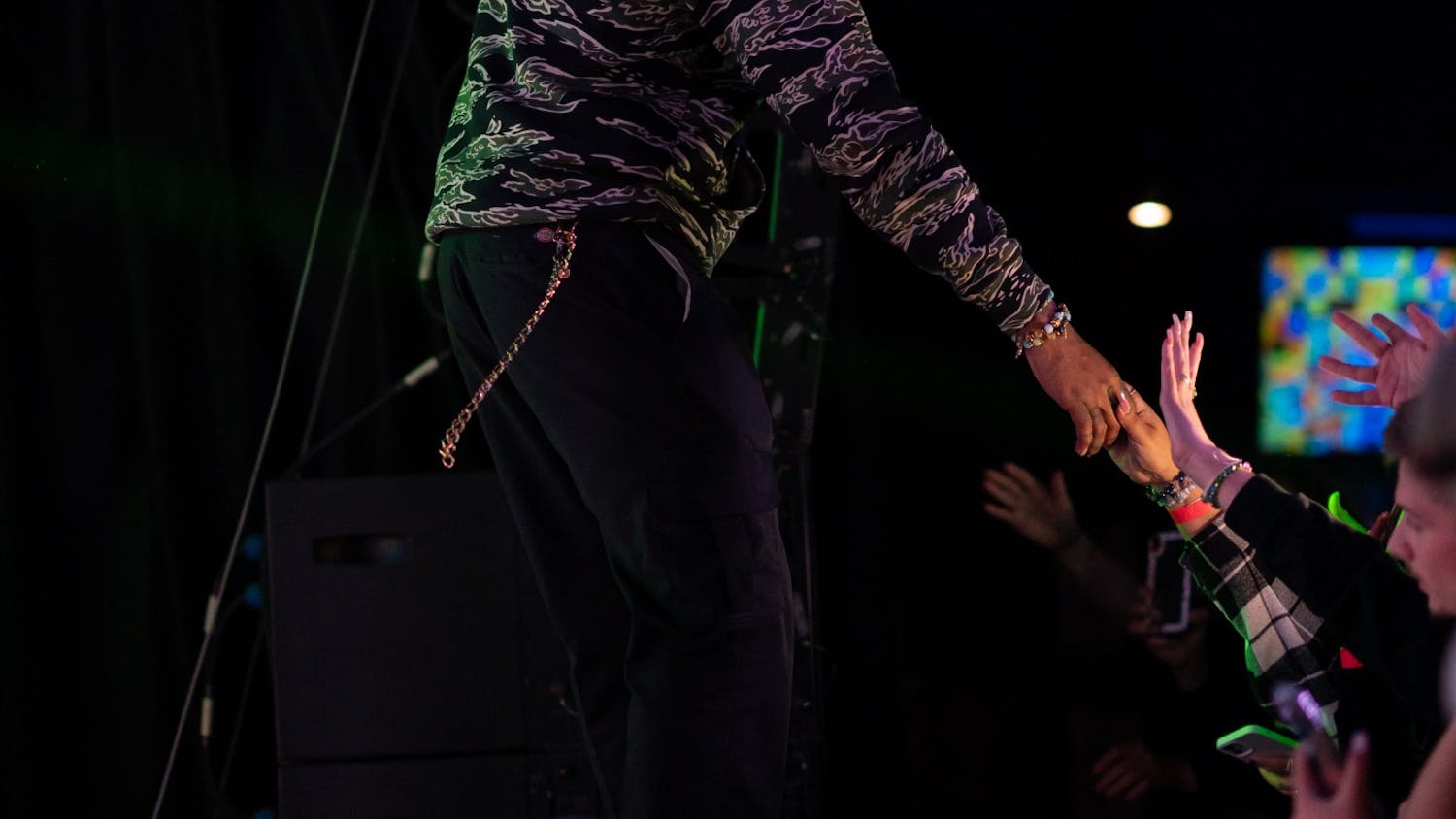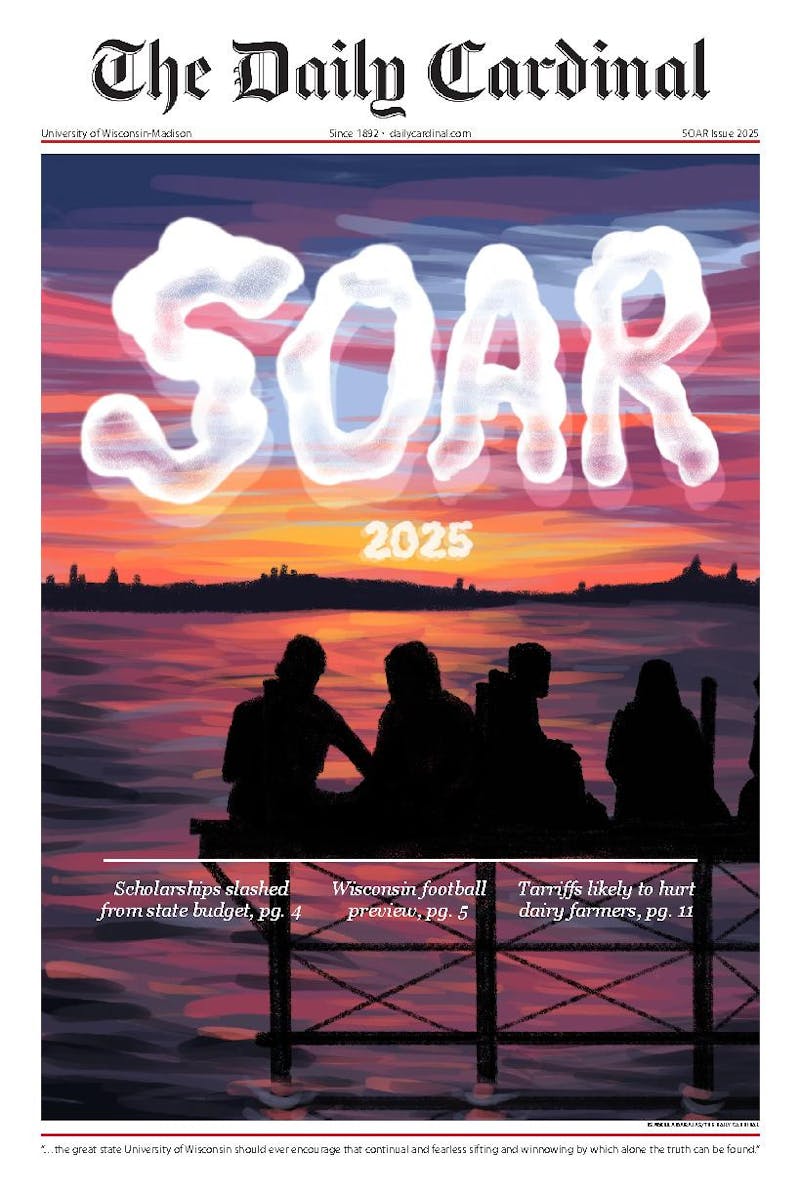The fact that two of the year's most highly anticipated hip-hop albums share a release date invites a certain amount of comparison of both the artists and their music.
First, there's Drake: the teen "Degrassi" heartthrob turned rapper/singer, sensitive and soft-spoken enough for your rabbi to proudly claim as one of the tribe (he's Jewish, after all).
Then, there's Childish Gambino (the pseudonym of Donald Glover), an Emmy-award winning "30 Rock" writer and actor on the hilarious "Community." If his background doesn't make him an unconventional rapper, listening to any of his songs will yield at least three pop culture references in the first 30 seconds, a quality that makes Drake's solid lyricism sound dull and depressing by comparison.
It's easy for me then, as a listener, to extend my comparison of the musicians to their music. With this perspective, Glover's promise on "Hold You Down" not to stop rapping until "James Franco is the white Donald Glover," makes this unconventional rapper the edgier MC for his alternative anti-materialistic social commentary.
This becomes especially clear next to Drake's discography. After all, isn't Drake the one singing the club-friendly hooks for the hedonistic hits of Rick Ross and Lil Wayne?
At his best, Glover is a whip-smart lyricist whose rhymes are equal-parts hilarious and subversive. "You're not not racist ‘cause the Wire's on your Netflix queue," he jabs (also from "Hold You Down"), a line that made me self-conscious for my season five binge a few weeks ago. If anything, Gambino's introduction to the mainstream is not only welcome, but also necessary for a genre that's been suffering from an identity crisis since The College Dropout.
Drake may appear to croon catchy hooks just as frequently as he does to spit, but it would be a mistake not to mention him as one of Kanye's successors of rap's avant-garde. Keeping in mind the strangely mournful odes to success and material wealth on his mixtape So Far Gone, it takes only one listen of Take Care's second single, the Nicki Minaj-featured "Make Me Proud," to see Drake as the edgier rapper, the one challenging how a rapper talks about women from hip-hop's inner circle.
"All I can say is / I'm so proud of you," Drake says in the chorus of the album's second-official single, one that reached No. 9 on the Billboard 100. When you look at his Saturday Night Live performance of the song on YouTube, take a second and step back, stop watching for booty shots of Nicki's posterior and ask yourself: When was the last time a rapper penned a chart-topper about his respect for a woman?
Despite its tendency to offer more of the usual textbook objectification, Lil Wayne's recent "How to Love" first comes to mind. The odds are that Drake's girl is as hot as the object of Wayne's affection-after all, it is Drake-but that isn't the focus of his serenade: "Sound so smart like you graduated college / Like you went to Yale but you probably went to Howard, knowing you / Weekend in Miami tryna study by the pool."
Drake's girl is obviously striking a pose by the pool, but it's her drive, her intelligence and character Drake loves. It may come off as a bit corny, but before cheapening it as forced, remember back to Drake's "Best I Ever Had"-that one that spent 14 weeks as the hottest song in the country and almost earned him a Grammy without making anyone a dime. Drake spends the song reassuring his girl of his love for her, no matter when he sees her or how she looks: "Sweatpants, hair tied, chilling with no makeup on / that's when you're the prettiest, I hope you don't take it wrong," a rhyme so honest and genuine you can't believe you didn't think of it.
That's not to say Drake doesn't have his misogynistic moments on Take Care. "Lord Knows," featuring Rick Ross, starts off with Drake describing the lack of trust he has in some women, going to far as "going through her phone / if she go to the bathroom / in her purse right there / I don't trust these hoes at all." Even at this low, Drake acknowledges that untrustworthy/selfish women share similar traits with the opposite sex.
At the expense of ostracizing myself from the very same community of musical criticism I'm trying to enter, comparing and generalizing rap, especially in this case, is a bit of a cop-out. Just because Camp and Take Care share a release date doesn't mean they should be pitted against each other; to say one is better than the other is an oversimplification at the expense of both artists and their genre.
The greater disservice, however, comes with listening for a message challenging hip-hop and rap and expecting it only to come from the outside. Just because the rap outsider is doing something new doesn't mean the MC of the hour isn't challenging conceptions of popular hip-hop. Of the two, Gambino may be the Williamsburg hipster at heart, but it's Drake who's the trendsetter.
Take Care, Drake says with his Tuesday release. I'd advise listening up.
Disagree? Let Ben know at brsiegel@wisc.edu.






